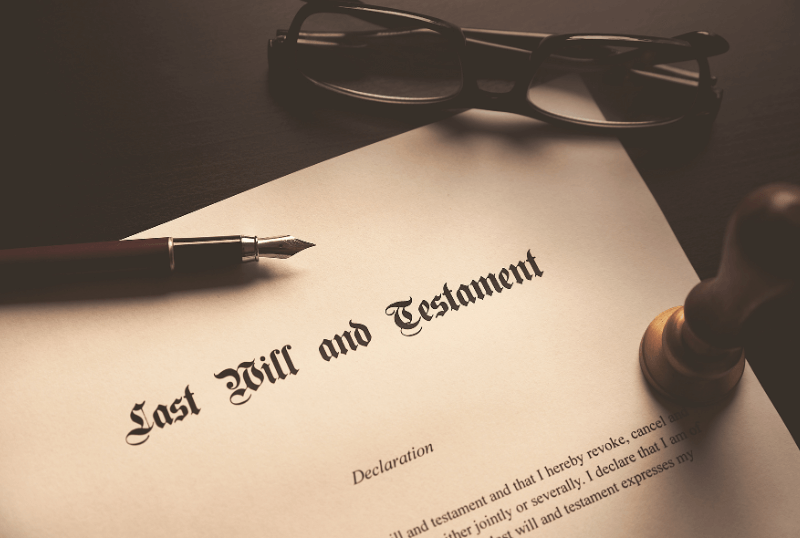
In the realm of estate planning, wills, and executors are twined concepts. An executor, appointed by the testator (the individual creating the will), is entrusted with the responsibility of managing the estate and ensuring that the wishes outlined in the will are fulfilled. However, a common question that often arises in this context is whether an executor has the authority to alter the terms of the will.
This article aims to delve into the intricacies of this question, providing a comprehensive understanding from the viewpoint of a legal professional. We shall explore the legal boundaries and responsibilities of an executor, the circumstances under which a will can be changed, and the checks and balances in place to safeguard the interests of the beneficiaries.
Understanding the Executor of a Will
An executor is a person appointed in a will by the person who made it (the “testator”) to carry out the directions and requests in the will. Think of them as a manager for the wishes left behind. They look after the property, make sure all the testator’s debts are paid, and distribute the remaining property as the will directs. Now, you might wonder, can this executor change the will?
Well, it’s important to understand that an executor has a legal responsibility to follow the instructions in the will. This is serious stuff! They are not allowed to change their will, even if they think some changes might be a good idea. The executor’s job is to handle the testator’s estate as per the instructions in the will, and the law ensures they do just that.
So, if the executor tries to change things around and doesn’t follow the will, they can get in big trouble. They could be removed from their role or even taken to court. Also, if they cause financial loss to the estate while trying to change the will, they may have to pay for it themselves. So, it’s always best to stick to the script, or in this case, the will!
Can An Executor Change the Will On Their Own
An executor is appointed by the decedent, the person who wrote the will, to carry out the wishes stated in the will after their death. This is a position of great responsibility and trust, and it comes with specific legal obligations.
Among the key duties of an executor is their responsibility to distribute the assets according to the terms of the will. They are legally bound to act in the best interest of the estate and the beneficiaries. As such, it’s important to know that an executor does not have the power to change the will on their own.
>>Everything You Need to Know about Selling an Inherited Property
Any changes to the will after the death of the decedent are generally considered illegal unless ordered by a court. The will is a legal document, and the executor is bound by law to adhere to its stipulations. If they attempt to alter the will, they can be held liable for breach of fiduciary duty, and there may be severe legal consequences.
In some rare instances, however, executors may petition the court if they believe a change is in the best interest of the estate or the beneficiaries—for example, to clear up a discrepancy or handle an unforeseen circumstance. Even then, such changes are not made unilaterally by the executor but must be approved by the court.
In conclusion, an executor is meant to carry out the wishes of the decedent as expressed in the will. They do not have the authority to modify those wishes or change the will on their own.
Can the Executor of a Will Override Beneficiaries
After the passing of a loved one, the executor of a will plays a crucial role in ensuring that the deceased person’s wishes are honored. A common question that arises in this process is whether the executor has the power to override the beneficiaries named in the will.
In general, the executor does not have this power. Their primary role is to administer the estate in accordance with the deceased person’s wishes as stipulated in the will, which includes distributing assets to the named beneficiaries. The executor is legally and ethically obligated to act in the best interest of the estate and the beneficiaries, not according to their personal wishes or desires.
However, there are exceptions to this rule. If the will contains ambiguous language, the executor may need to interpret the deceased person’s intentions, which could potentially change the distribution of assets. Alternatively, if a legal issue arises that challenges the validity of the will or a claim against the estate is made, the executor may have to make decisions that could affect the beneficiaries.
It’s important to note that any changes made by the executor under these circumstances should be guided by legal advice and the intention of doing what’s best for the estate. Any perceived misuse of power could lead to legal repercussions. Therefore, while the executor has considerable responsibilities and some discretion, their ability to override beneficiaries is quite limited.
What Can the Executor of a Will Not Do
The role of an executor, while important, is bound by legal constraints. An executor does not have the authority to change the content of the will. They cannot decide to distribute assets in a manner that differs from what the will specifies. They are also prohibited from using the assets for their personal gain, like selling off property at a lower cost to themselves.
>>Can the executor sell the property to himself?
Dealing unfairly with creditors is another action an executor can’t do. All debts owed by the deceased must be paid before the distribution of assets, and preferential treatment of some creditors over others is not allowed. Finally, an executor cannot withhold information about the estate from the beneficiaries. They have a responsibility to keep all beneficiaries informed about the estate’s matters.
Can the Executor Refuse to Pay a Beneficiary
When it comes to estate administration, there are often questions about the responsibilities and powers of the executor. One common inquiry is whether an executor can refuse to pay a beneficiary. In general, an executor does not have the power to withhold a beneficiary’s rightful inheritance as described in the will. The executor is legally bound by the terms of the will and must faithfully execute its instructions. This usually entails identifying estate assets, paying off any debts or taxes, and then distributing the remaining assets to the named beneficiaries.
However, there are some circumstances where payment may be delayed. This could occur if the estate lacks sufficient funds to cover debts and taxes. In such a case, these obligations must be settled before any distribution can be made to beneficiaries. Additionally, if a will’s validity is contested or there’s a dispute among beneficiaries, the distribution could be held up until the matter is resolved.
It’s also important to note that while executors must act in the best interest of the beneficiaries, they can’t arbitrarily modify the will. If there’s a perceived need for changes, it would usually require court approval or a formal agreement by all beneficiaries. Executors who fail to carry out their duties properly can be held legally accountable and may face penalties or removal.
In conclusion, the executor’s role is to manage and distribute the estate according to the deceased’s wishes as outlined in the will. They don’t possess the power to change the will or deny a beneficiary their rightful inheritance without a valid reason. Anyone facing such a situation should seek professional legal advice to understand their rights and the possible avenues to redress the issue.

Final Takeaways
In conclusion, an executor has a significant role in carrying out the wishes of the deceased as detailed in their will. It’s crucial to understand that the executor cannot change the will, as it’s a legally binding document. Their duties extend to handling the estate of the departed, including the selling of houses.
In the case of selling a property, engaging with cash home buyers can be advantageous. This process is quicker, more straightforward, and eliminates many of the uncertainties associated with traditional house sales.
Cash home buyers in Philadelphia offer an immediate solution for the executor who wishes to quickly settle the estate. However, always ensure you deal with reputable “we buy houses Springfield” to protect the interests of the beneficiaries and uphold the integrity of the executor’s role. Therefore, while the executor cannot change the will, they can decide on the most beneficial method of executing its directives, such as opting for cash home buyers when selling a house fast in Pennsylvania.

 Call Us!
Call Us!